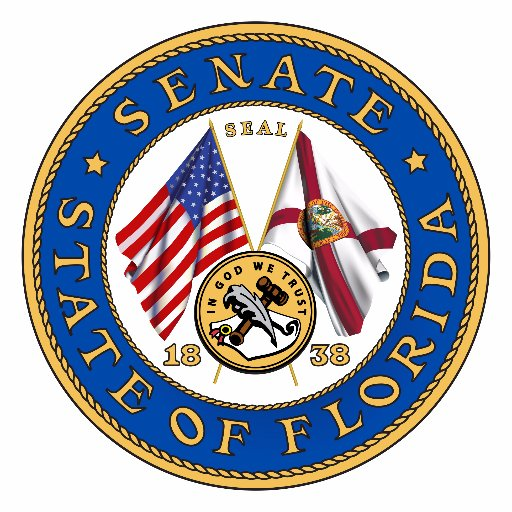
Measure would have Florida’s CFO set the rate paid on IOTA accounts
Two state lawmakers have filed legislation that would have the state’s chief financial officer set the rates paid on the lawyer IOTA accounts, instead of a recently enacted Florida Supreme Court rule requiring lawyers to keep their trust accounts in institutions that tie interest rates for IOTA accounts to specific indexed rate points.

Sen. Erin Grall says the IOTA rule as it stands “limits an attorney’s ability to bank at the institution that best meets the needs of their firm and clients, and this bill provides an alternative solution, mitigating the tangible and adverse consequences to Florida’s banks and legal practices.”
The rules governing the Interest on Trust Accounts Program, which generates funds used to provide grants to legal aid organizations that provide civil legal assistance to low-income Floridians, is overseen by the Supreme Court, which regulates the legal profession.
The court is currently reviewing changes it made to the rule in March 2023 at the request of the Florida Bankers Association, which opposed those changes, and is already bringing in tens of millions of extra dollars in civil legal aid funding.
The proposed legislation is identical in the Florida House and Senate. It would decrease the amount of revenue generated by the IOTA program by capping the maximum percentage that banks would have to pay on these IOTA accounts that attorneys use to store all nominal or short-term client funds.
Under the proposed measures, the state’s Chief Financial Officer would set the interest rates each quarter and be prohibited from ever setting that rate above 2.55%. As of this publication, under the current rule, banks are paying an interest rate of 3.4%, a difference of .85%.
While that .85% difference may seem small, it compounds quickly across the 163 banks participating in the IOTA program, with more than 36,000 accounts holding hundreds of millions of dollars. It is possible to imagine this compounding effect when looking at a single IOTA account, for instance, holding a million dollars. Under the current IOTA rule modified by the court in March, the bank holding that money would pay $34,000 in interest that would get swept by FFLA (formerly The Florida Bar Foundation) and distributed as civil legal aid.

Rep. Robert Brackett
But under the proposed legislation, the bank would pay a maximum of $25,500 in interest, a difference of $8,500.
The Supreme Court’s rule (5-1.1 (g)(5)(B)) currently provides: “When the Wall Street Journal Prime Rate (‘indexed rate’) is between 325 and 499 basis points (3.25% and 4.99%), the yield must be no less than 300 basis points (3.00%) below the indexed rate in effect on the first business day of each month. When the indexed rate is 500 basis points (5.00%) or above, the yield must be no less than 40% of the indexed rate in effect on the first business day of each month.”
As of this publication, the prime rate referenced in the court’s current IOTA rule, is 8.5%. Because that percentage is greater than 5%, banks must pay 40% of it as interest, which equates to 3.4%, and is the percentage they are paying today.
The bills, SB 1336 and HB 1253, provide that, “On December 1, March 1, June 1, and September 1 of each year, the Chief Financial Officer shall set the rate of interest, net of all fees and service charges, which must be payable on interest on trust accounts (IOTA) by eligible institutions for the calendar quarter effective on the following January 1, April 1, July 1, and October 1, respectively, by using the higher of 68 percent of the upper bound of the federal funds rate or 25 basis points (0.25 percent). This rate is the established compliance rate. The annual percentage yield of the established compliance rate may not exceed 255 basis points (2.55 percent).”
That is the language indicating banks would never pay beyond 2.55%, which explains the .85% difference from what they are paying currently under the court’s rule, resulting in the $8,500 decrease in the scenario where a single IOTA account is holding a million dollars of a client’s money.
But the legal aid funding decrease described in that scenario could be more than $8,500. That’s because proposed measures also give banks an out from paying the maximum proposed interest rate of 2.55% by allowing them to pay a rate comparable to their non-IOTA accounts as long as it is at least .25%, which is similar to the IOTA rule before the court made its changes last March.
That opt-out for banks is described in the second paragraph of the bills:
“In lieu of paying the established compliance rate, the bills require all eligible institutions to pay an annual percentage yield that is the higher of the highest interest rate or dividend generally available from the institution to its non-IOTA business or consumer account customers, or its nonmaturing deposit account customers, or 25 basis points (0.25 percent), when IOTA accounts meet or exceed the same minimum balance or other eligibility qualifications.”
In statements promoted by the bankers association, the bill sponsors, Sen. Erin Grall, R-Vero Beach and Rep. Robert Brackett, R-Vero Beach, indicated they didn’t want to damage the working relationship between attorneys that use these trust accounts and banks.
“SB 1336 will bring an appropriate and needed resolution to the current rule that dictates that lawyers must house their trust accounts at institutions that align their IOTA interest rates with specific indexed points that are much higher than similarly situated accounts,” Sen. Grall, a lawyer, said in a statement provided by the Florida Bankers Association. “The rule limits an attorney’s ability to bank at the institution that best meets the needs of their firm and clients, and this bill provides an alternative solution, mitigating the tangible and adverse consequences to Florida’s banks and legal practices.”
Rep. Brackett, the House sponsor, wrote, “lawyers do not want to see their banking relationships disrupted by this unfair interest rate increase.”
He added: “We hope the court will require the stakeholders to revisit the issue.”
The Florida Bankers Association supports the proposed measures.
“We are navigating uncharted territory with interest rates set by judicial committees and are hopeful that the Supreme Court will rule favorably on this case,” stated Florida Bankers Association CEO Kathy Kraninger in a January 11 press release. “In the meantime, we support this legislation because the current IOTA interest rate jeopardizes the entire program.”

Joseph “Jody” D. Hudgins
Jody Hudgins, a retired banker and former longtime teacher at The Florida Bankers Association who is the architect of the court’s rule, notes there is a guardrail built into the current approach in that banks still make financial gains on IOTA accounts because the interest rates they pay out will always be lower than the interest rates they earn by at least 3%.
For instance, under the amended rule, when prime rate is between 3.25% and 5%, then the trust account rate banks pay out is between .25% and 2%, a 3% gain. After that, the gains get even better for banks. At a 7% interest rate, for example, banks will pay out 2.8%, a 4.2% gain.
In an interview with the Bar News last year, Hudgins called the amended rule a “win-win.”
Still, the Florida Bankers Association has argued to the court that this payment structure is financially untenable.
Originally published at https://www.floridabar.org/the-florida-bar-news/measure-would-have-floridas-cfo-set-the-rate-paid-on-iota-accounts/
The post Measure would have Florida’s CFO set the rate paid on IOTA accounts first appeared on City News Miami.
Law - City News Miami originally published at Law - City News Miami


